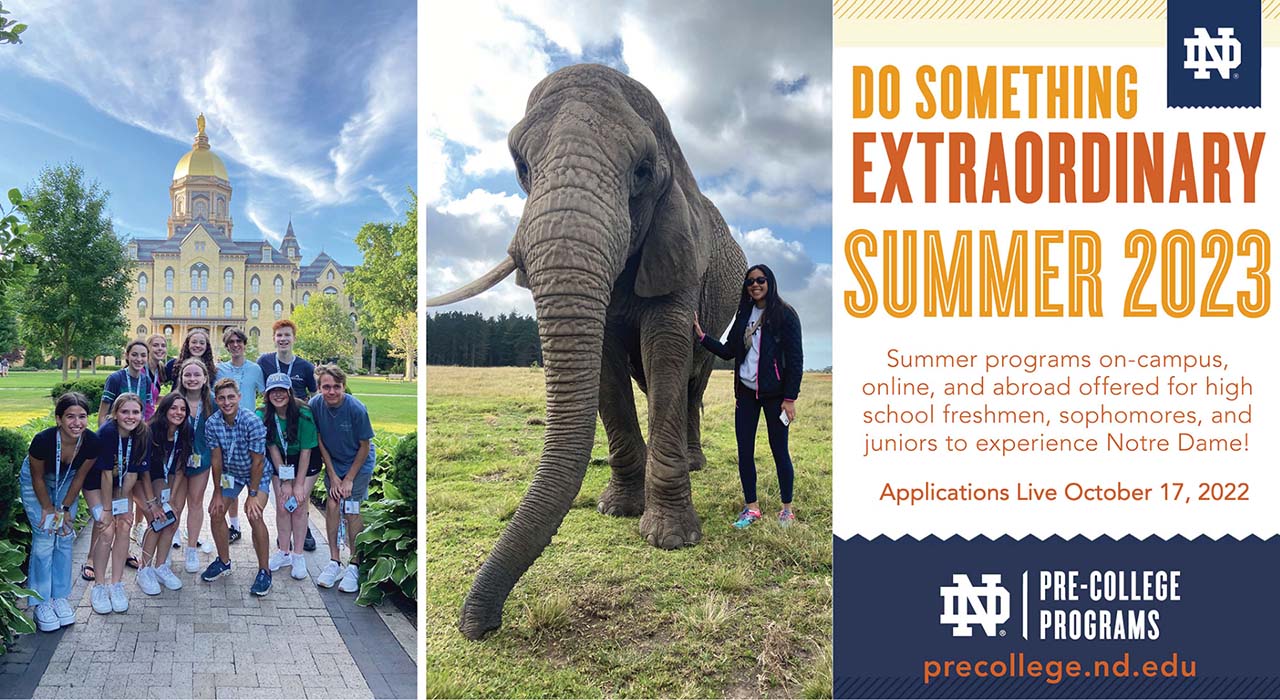 In our globalized world, international education is more than just a trend; it’s an opportunity. Students worldwide have been seizing the chance to experience new cultures, learn new languages, and engage in a rich and diversified academic environment. Among the plethora of options available to these intrepid learners are study abroad programs of different durations. These range from short-term courses, such as summer or winter sessions, to long-term programs, including full degree courses. Understanding the nuances and benefits of both these options is key to making an informed decision.
In our globalized world, international education is more than just a trend; it’s an opportunity. Students worldwide have been seizing the chance to experience new cultures, learn new languages, and engage in a rich and diversified academic environment. Among the plethora of options available to these intrepid learners are study abroad programs of different durations. These range from short-term courses, such as summer or winter sessions, to long-term programs, including full degree courses. Understanding the nuances and benefits of both these options is key to making an informed decision.
Delving into Short-Term Study Abroad Programs
Short-term study abroad programs typically run for a few weeks up to three months. They are excellent options for students looking for a quick immersion into another culture or a brief but intense academic experience. Some of the key benefits and considerations for these programs are:
Flexibility and Variety
Short-term programs usually take place during academic breaks, such as summer or winter sessions. This flexibility allows students to study abroad without disrupting their regular academic schedules at home. Furthermore, these programs often cover a wide range of topics, from intensive language learning to specialized courses in fields like business, art, or environmental science. This variety enables students to select a program that aligns with their academic or career interests.
Cultural Immersion and Personal Development
Even though these programs are brief, they offer a unique opportunity for cultural immersion. Living and studying in a new environment, students can develop a global perspective, foster intercultural skills, and grow personally. Despite the short duration, these experiences often leave lasting impressions on participants.
Affordability
Generally, short-term study abroad programs are more affordable than long-term programs due to their shorter duration. This accessibility can be a deciding factor for many students, making international education more attainable.
Venturing into Long-Term Study Abroad Programs
Long-term study abroad programs encompass full semesters, academic years, or full-degree courses, such as a BA or an MS in the USA. The extended period allows students to immerse themselves deeper into the academic and cultural life of their chosen destination. Let’s explore some of the key benefits and aspects of these programs:
Comprehensive Academic Experience
Long-term programs offer comprehensive academic experiences, providing students with the opportunity to fully explore their chosen field in a different educational system. This deeper academic engagement can enhance the value of their degree and improve their career prospects.
Profound Cultural Immersion
Living in a foreign country for an extended period allows for a deeper understanding and appreciation of the host culture. Students become more proficient in the local language, build long-lasting relationships, and experience personal growth that can only come from overcoming the challenges of living abroad.
Achieving a Degree Abroad
Enrolling in a full-degree program abroad, particularly for international students looking to get their degree in the US, allows such students to obtain a degree from internationally recognized universities. This accomplishment can make a significant impact on a student’s career trajectory, as employers often value international experience and education.
Choosing Between Short-Term and Long-Term Courses: What to Consider?
Choosing between short-term and long-term Study Abroad Courses largely depends on a student’s personal circumstances, academic goals, and career aspirations. Here are some factors to consider:
Time Commitment and Flexibility
The choice between short and long-term programs often depends on how much time a student can commit. Short-term programs can be squeezed into academic breaks, while long-term programs require a more significant commitment and potential disruption to a student’s home university schedule.
Financial Considerations
Long-term programs, particularly full-degree programs, can be costly. However, they can also be seen as investments, given the potential return in terms of enhanced career prospects. Short-term programs, on the other hand, offer an affordable way to gain international experience.
Academic and Career Goals
For students who want to specialize in a particular field, long-term programs like an MS in USA can provide in-depth knowledge and exposure. Meanwhile, short-term courses can complement a student’s current study program or allow them to explore new academic areas.
The Impact of Global Perspective
Regardless of the length of the program, one of the key takeaways from studying abroad is the development of a global perspective. This broader viewpoint can positively affect a student’s professional and personal life.
For those attending short-term programs, even a few weeks abroad can expose students to different ways of thinking, various cultural practices, and diverse societal norms. This exposure can enhance students’ adaptability and flexibility, valuable traits in today’s globalized world. It can also inspire students to think more internationally in their studies and future career.
For students embarking on long-term programs, they have the opportunity to delve even deeper into the culture and society of the host country. They get a chance to participate in local events, form deeper relationships with locals, and perhaps even become part of the community. They also have a longer duration to observe and understand the socio-political and economic aspects of the host country. This in-depth understanding can be particularly valuable for those planning to work in fields related to international relations, social sciences, business, or politics.
Extensive Language Learning Opportunities
Studying abroad provides an unparalleled opportunity for language learning. For short-term programs, the immersion in a foreign language, even if for a few weeks, can significantly boost language proficiency. Intensive language courses, often a part of short-term programs, coupled with daily practical usage, accelerate the learning process.
Long-term programs, on the other hand, allow students to achieve near-native fluency. Continuous exposure to the language, both in academic and social settings, ensures comprehensive language learning. Proficiency in a foreign language can be a significant advantage in many career fields, adding to the professional value of study abroad programs.
Building an International Network
Another significant advantage of studying abroad is the chance to build an international network. In short-term programs, students meet and interact with a diverse group of peers from around the world, fostering friendships and connections that can last a lifetime.
In long-term programs, students have even more opportunities to network. They can establish professional connections in their field of study through internships, research opportunities, or university networking events. Furthermore, they can build stronger relationships with faculty members, which can open doors to further academic or career opportunities.
Personal Growth and Independence
Studying abroad encourages personal growth and independence. For students in short-term programs, the experience of living abroad, albeit briefly, often forces them out of their comfort zones. They learn to adapt to a new environment, navigate unfamiliar places, and handle unexpected situations.
In long-term programs, the extended duration amplifies this growth. Living independently in a foreign country for months or years, students become adept at handling various challenges, from managing finances to dealing with culture shock. This experience cultivates resilience, self-reliance, and problem-solving skills, valuable traits that can greatly contribute to personal and professional success.
The Unmatched Experience of Studying Abroad
In conclusion, both short-term and long-term study abroad programs offer valuable experiences that contribute to academic growth, career enhancement, and personal development. Whether one opts for a short summer course in Italy or decides to pursue an MS in USA, the experience is bound to be life-changing. By carefully considering their personal circumstances, financial capacity, academic objectives, and career goals, students can select the program that best suits them and embark on an unforgettable educational journey.

 Social work is a fast-growing field that requires a commitment to helping others. According to the U.S. Bureau of Labor Statistics, the job outlook for social workers is promising, with an estimated 9% increase in employment opportunities projected from 2021 to 2031, which is faster than the average growth rate for all occupations.
Social work is a fast-growing field that requires a commitment to helping others. According to the U.S. Bureau of Labor Statistics, the job outlook for social workers is promising, with an estimated 9% increase in employment opportunities projected from 2021 to 2031, which is faster than the average growth rate for all occupations. 
 Applications for Summer 2023 programming on University of Notre Dame’s campus, online, and abroad are
Applications for Summer 2023 programming on University of Notre Dame’s campus, online, and abroad are  Germany is one of the most attractive countries in Europe from both educational and professional perspectives. Germany is known for innovative employment opportunities in automation and engineering fields. In addition to this, Germany has one of the lowest unemployment rates across Europe. Often, students desire to work part-time jobs for generating secondary income while they study in Germany; however, they need to realize that there are different conditions for different students who desire to work in Germany while completing their studies.
Germany is one of the most attractive countries in Europe from both educational and professional perspectives. Germany is known for innovative employment opportunities in automation and engineering fields. In addition to this, Germany has one of the lowest unemployment rates across Europe. Often, students desire to work part-time jobs for generating secondary income while they study in Germany; however, they need to realize that there are different conditions for different students who desire to work in Germany while completing their studies.
 University of Exeter, a member of the Russell Group of research-intensive UK universities, has shared some exciting news for prospective international students: a new scholarship opportunity.
University of Exeter, a member of the Russell Group of research-intensive UK universities, has shared some exciting news for prospective international students: a new scholarship opportunity. While Tufts University in Massachusetts is best known as a very selective research university that offers a diversity of strong undergraduate degree programs, it also offers two
While Tufts University in Massachusetts is best known as a very selective research university that offers a diversity of strong undergraduate degree programs, it also offers two 

